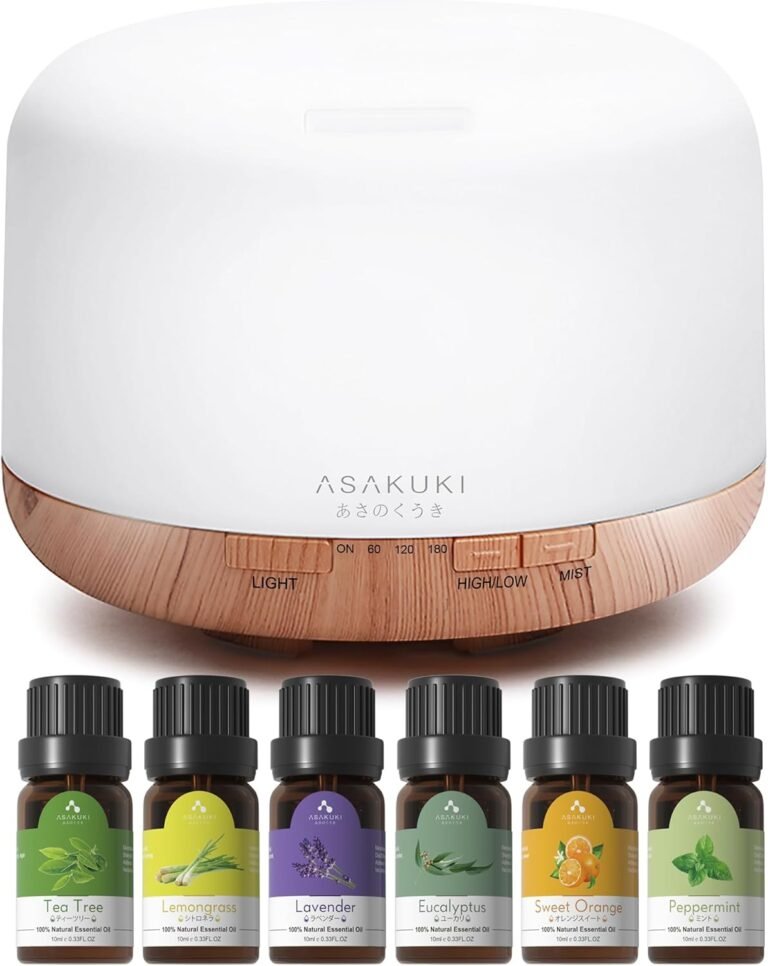In our fast-paced world, the quest for a sharper mind is relentless. Amidst the myriad of advice and solutions, one fundamental pillar often gets overlooked: sleep. Yes, the key to elevating mental acuity might just lie in the quality of your zzz’s. If you’ve ever wondered, “How Much Sleep Do I Need?” to maintain a razor-sharp mind. Well, you’re about to learn more about the transformative power of sleep, how it impacts happiness, health, and mental sharpness.

How Much Sleep Do You Need? – Understanding the Basics
Navigating through the complexities of daily life, one might ask, “How much sleep is truly enough?” According to the National Sleep Foundation, the golden range for adults lies between 7 and 9 hours each night. This range isn’t arbitrary; it’s rooted in countless studies that link adequate sleep duration to optimal health, cognitive function, and emotional well-being. Yet, it’s imperative to understand that it’s not merely the hours spent asleep that matter, but the quality of those hours. High-quality sleep, characterized by uninterrupted, deep cycles, allows the brain to effectively process the day’s information, consolidate memories, and rejuvenate for the challenges ahead.
Your unique lifestyle, health, and even genetic makeup can influence exactly how much sleep you require within this recommended range. Some individuals thrive on the lower end, feeling fully refreshed and alert with just 7 hours, while others may need the full 9 hours to hit their peak performance. The key is to listen to your body’s signals. Symptoms like fatigue, difficulty concentrating, or a reliance on caffeine might indicate that you’re not getting the sleep your body and mind crave.
It’s also worth noting that sleep needs can shift with age, stress levels, and physical activity. Periodically readjusting how much sleep you get can leave you feeling better. It can help you stay attuned to your body’s needs. By aiming for the sweet spot of sleep duration tailored to you, you’re setting the stage for enhanced mental sharpness, better health, and a happier life.

Boosting Mental Sharpness Through Quality Sleep
Engaging in the quest for a keen mind, we uncover the pivotal role of sleep in honing mental faculties. It is during the deep, uninterrupted phases of sleep, particularly REM sleep, that the brain undertakes the crucial task of memory consolidation and information processing. This nocturnal activity is essential for learning, enhancing cognitive abilities such as decision-making, and fostering innovative thinking. A brain nurtured by sufficient, quality sleep is more agile, capable of faster information retrieval, and better equipped for complex cognitive tasks.
The dynamics between sleep and mental acuity underscore the importance of nurturing our sleep patterns. Disruptions in this delicate balance can impede the brain’s ability to function at its full capacity. The intricacies of how sleep affects thinking and memory showcase the brain’s need for this restorative period to cleanse itself of toxins, repair neural pathways, and strengthen connections made throughout the day. These processes are instrumental in preparing the mind for the challenges of the following day, ensuring that it remains sharp, focused, and resilient.
By prioritizing sleep, we embrace a natural enhancer of mental sharpness, unlocking our potential for greater creativity, improved problem-solving skills, and an accelerated learning curve. The commitment to quality sleep is, therefore, not just about combating tiredness but about proactively cultivating a mental edge. In this light, the journey towards achieving peak mental performance is as much about the hours we dedicate to rest as it is about the activities we engage in while awake.

Sleep and Emotional Well-Being: Release Happiness
The entanglement of sleep with our emotional landscape is profound. A lack of restorative sleep can exacerbate feelings of stress and anger, leaving us more vulnerable to the grips of anxiety and depression. Conversely, when we achieve a state of consistent, quality sleep, we unlock a level of emotional resilience that can buoy us through life’s inevitable ups and downs. This resilience stems from sleep’s role in regulating our hormonal balance, notably influencing serotonin and cortisol levels, which are pivotal in managing our mood and stress responses.
Moreover, the ripple effect of a well-rested state on our emotional well-being cannot be overstated. Sleep acts as a reset button for our emotional brain circuits, allowing us to approach each day with a refreshed perspective and enhanced emotional clarity. This clarity and stability lead to improved interpersonal relationships and a more positive outlook on life, thereby contributing to a sense of happiness and fulfillment.
Achieving quality sleep, then, becomes an essential tool in our emotional toolkit. It is through understanding and prioritizing our sleep needs that we can harness this natural ally in our quest for emotional balance and happiness. By fostering an environment conducive to sleep and adhering to routines that promote restfulness, we empower ourselves to navigate the emotional landscapes of our lives with grace and resilience. As such, sleep is not just a fundamental need but a cornerstone of our emotional well-being, opening a path to a happier and more emotionally balanced life.

The Physical Health Perks of Sleeping Well
When we look at physical health, the advantages of sound sleep are manifold and profound. A well-rested body sets the stage for a heart that beats stronger and a vascular system that functions more efficiently, remarkably reducing the risk of cardiovascular diseases. During the tranquility of deep sleep, blood pressure lowers, providing a period of rest for the heart and blood vessels, which is crucial in maintaining overall cardiovascular health.
Equally significant is sleep’s role in metabolic regulation. As we slumber, our bodies effectively process glucose, the sugar that serves as a primary energy source, thereby aiding in blood sugar control and reducing the risk of type 2 diabetes. This intricate dance between sleep and metabolism also influences weight management, as sleep affects the hormones ghrelin and leptin, which regulate hunger and fullness, respectively. By keeping these hormones in balance, quality sleep can help prevent overeating and support weight loss efforts.
On the frontline of defense against illness is our immune system, which is significantly bolstered by adequate rest. Sleep enhances the body’s immune response, enabling it to better fend off infections and recover more swiftly from illness. This is partly because during sleep, the production of certain proteins that fight infection, inflammation, and stress increases, equipping our bodies to battle incoming health threats more effectively.
The reparative power of sleep also extends to muscle and tissue growth and repair, underscored by the release of growth hormone during deep sleep phases. Whether recovering from physical exertion, injury, or illness, the body’s healing processes are optimized by quality rest, underscoring sleep’s essential role in maintaining and improving our physical health.
Strategies for Improving Sleep Quality and Duration
Navigating the path to better sleep can often feel like a daunting task, but by incorporating simple, yet effective strategies into your daily routine, you can significantly enhance both the quality and duration of your rest. Creating a sleep-promoting environment is a foundational step. This involves optimizing your bedroom for comfort and tranquility, ensuring it is dark, quiet, and at a cool, comfortable temperature. Consider the use of blackout curtains and white noise machines if external light and sounds are disruptive.
Establishing a consistent bedtime routine signals to your body that it’s time to wind down. Activities such as reading, taking a warm bath, or practicing meditation can help ease the transition from wakefulness to sleep. It’s also important to adhere to a regular sleep schedule, even on weekends, to reinforce your body’s sleep-wake cycle.
Mindful dietary habits play a significant role in sleep quality. Limiting caffeine and alcohol intake, especially in the hours leading up to bedtime, can prevent sleep disturbances. Opting for light snacks instead of heavy meals can also contribute to a more restful night.
For those who find their minds racing at bedtime, journaling or engaging in gentle stretching exercises can provide an outlet for releasing the day’s stresses and tensions. Additionally, limiting exposure to screens and blue light from electronic devices in the evening is critical, as these can interfere with the body’s natural production of melatonin, the hormone responsible for regulating sleep.
By integrating these strategies into your life, you take proactive steps towards achieving the restorative sleep your mind and body need to function at their best. Remember, improving sleep is a gradual process that requires patience and consistency, but the rewards of enhanced well-being and vitality are well worth the effort.

The Ripple Effect: How Better Sleep Transforms Your Life
The life-changing power of improved sleep stretches far beyond the confines of our beds, influencing virtually every aspect of our day-to-day existence. With the foundation of quality sleep, we find ourselves handling the complexities of work, education, and personal endeavors with a heightened sense of clarity and vigor. The mental acuity sharpened by sound sleep equips us to tackle tasks with improved focus and creativity, leading to notable advancements in productivity and problem-solving capabilities.
Emotionally, the stability fostered by consistent, restful nights enhances our interactions and connections with others. A well-rested individual is more adept at managing stress, navigating social dynamics, and offering support to loved ones, thereby strengthening the bonds that enrich our lives. This emotional equilibrium also fosters a greater capacity for empathy and understanding, essential qualities for nurturing relationships.
Physically, the benefits of optimal sleep manifest in increased energy and stamina, empowering individuals to engage more actively in physical activities and pursue a healthier lifestyle. This invigorated state not only promotes personal well-being but also inspires a zest for life that is contagious, positively impacting those around us.
In the sphere of personal growth and development, the insights gained from a rested mind encourage self-reflection and the pursuit of passions. The creativity and inspiration that flow from a well-rested brain light the spark for new hobbies, interests, and learning opportunities, facilitating a journey of continuous self-improvement.
As we navigate the ripple effect of better sleep, it becomes evident that the quality of our slumber is intricately linked to the quality of our lives. Embracing the pursuit of restful nights is to embrace a path toward enhanced well-being, enriched relationships, and a fuller, more vibrant life experience.

Sleep: Your Personal Superpower
Recognizing sleep as our personal superpower transforms how we value this essential aspect of our lives. Far from being a mere period of inactivity, sleep is a dynamic process that significantly contributes to our overall well-being and ability to function at our best. By prioritizing sleep, we release a host of benefits that permeate every facet of our existence, from enhancing mental clarity and emotional stability to boosting physical health and resilience.
This empowering perspective encourages us to see sleep not as an obligation but as a cherished ally in our quest for a fulfilling life. It’s the unsung hero behind our daily successes, quietly enabling us to tackle challenges with greater ease and confidence. As we commit to improving our sleep quality and duration, we not only rejuvenate our bodies and minds but also elevate our capacity for creativity, empathy, and personal growth.
The magic of sleep lies in its capacity to restore and refresh us, granting the strength and wisdom needed to navigate life’s complexities with grace. It’s the ultimate form of self-care, a nightly ritual that nourishes our essence and prepares us to embrace the day ahead with open arms and a sharp mind. By harnessing the power of sleep, we tap into an inner superpower that drives progress, fosters well-being, and enriches our journey through life.
Join the Conversation!
We’d love to hear your thoughts about the topic we discussed in this article. What new thing have you learned from this Article today? Do you have any tips or experiences to share? Drop a comment below and join our community discussion!
Connect with Our Community
Don’t forget to Join our YouTube Community for more health and wellness insights. It’s a great place to stay informed and inspired on your journey to a healthier lifestyle.
Explore More on Holistic Living
Interested in a holistic approach to health? Check out our other related blog posts on Holistic Lifestyle to deepen your understanding and expand your wellness practices.





